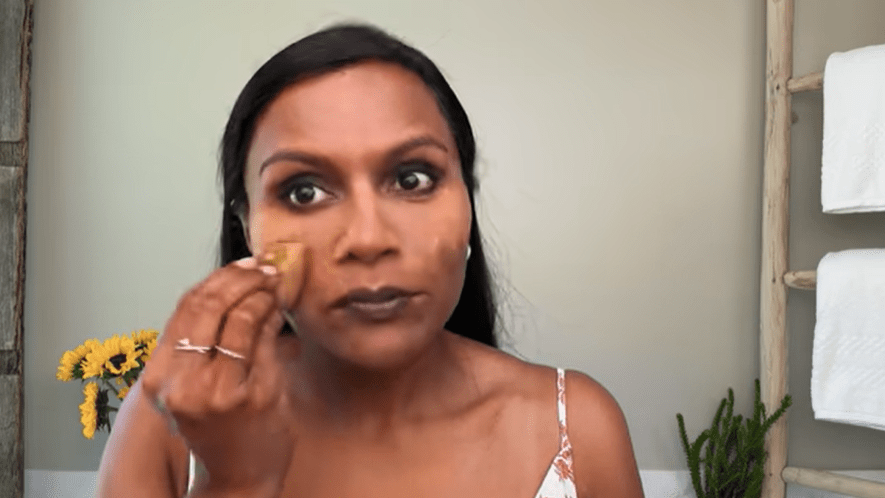| Attribute | Details |
|---|---|
| Full Name | Vera Mindy Chokalingam |
| Known As | Mindy Kaling |
| Birthdate | June 24, 1979 |
| Birthplace | Cambridge, Massachusetts, USA |
| Nationality | American (Indian descent) |
| Profession | Actress, Writer, Producer |
| Famous For | “The Office,” “The Mindy Project,” screenwriting, comedic voice |
| Rumored Procedures | Rhinoplasty, lip fillers, Botox, skin lightening |
| Public Confirmation | None confirmed, purely speculative |
| Reference | Vera Clinic |

A digital firestorm of conjecture has been sparked by Mindy Kaling’s remarkably altered appearance in recent public appearances, especially in relation to the theory that she may have had plastic surgery. Compared to her early years on The Office, her cheekbones seem noticeably higher, her nose is remarkably sculpted, and her lips are noticeably plumper. By contrasting before-and-after images posted by both beauty blogs and fans, the discussion surrounding Kaling’s changing appearance has progressed from mild interest to heated controversy.
Celebrities have made it harder to distinguish between subtle enhancement and transparency in recent years. While some celebrities, such as Chrissy Teigen and Kaley Cuoco, have publicly acknowledged having fillers or having their buccal fat removed, Mindy Kaling has kept quiet about the procedure. She has made subtle jokes about having a “great dermatologist” in interviews, which fans took as a potential hint at minor cosmetic surgery given industry rumors.
According to Dr. Joel Kopelman, a plastic surgeon from Manhattan who has been interviewed by numerous publications, Kaling’s transformation may “very likely” be the consequence of several non-invasive procedures. These could include cheek volumization, lip fillers, subtle rhinoplasty, and potentially skin-tightening procedures like Ultherapy. Additionally, he mentioned that the effects of drastic weight loss, especially around the jawline and under the eyes, can occasionally resemble the outcomes of a surgical procedure.
These accusations are hardly revolutionary by Hollywood standards. However, when considered from the perspective of representation and ethnicity, they carry a great deal of cultural weight. Kaling has long been hailed as a body-positive and genuine role model, and she is one of the few South Asian women to achieve mainstream comedic fame on American television. Her earlier natural look, which stood in stark contrast to the Eurocentric beauty standards that are so frequently exalted in the media, struck a deep chord with her fans.
Some Reddit users, though, were disappointed by her possible changes. One user lamented the apparent loss of an empowering image for darker-skinned South Asian women, writing that Kaling had “ruined her face” with excessive plastic surgery. Despite their strong emotional content, these criticisms reveal a deeper conflict between individual autonomy and societal expectations. Under constant scrutiny, female celebrities are compelled to walk this line.
In terms of glamor and polish, Mindy Kaling’s appearance has significantly improved. She has exuded confidence, poise, and radiance on numerous red carpet appearances. Expert makeup artists, improved styling, weight loss, or well-chosen camera angles could all be responsible for this. Or, as many admirers surmise, a combination of the aforementioned plus covert cosmetic assistance.
Her purported face makeover occurs at a time when the distinction between “natural” and “enhanced” features has become more hazy in society. Cosmetic adjustments are now remarkably effective and very affordable thanks to the popularity of injectables like Botox, lip fillers, and collagen boosters. Even minor adjustments can produce what many people believe to be a drastically updated appearance by utilizing these tools.
Skin lightening speculation has also surfaced in relation to racial identity, especially from online forum critics who claim her skin tone appears “visibly lighter” in recent pictures. Communities that are sensitive to the widespread colorism ingrained in both Eastern and Western cultures are concerned about this, even though it may be the result of lighting, photography filters, or makeup. This discussion reflects broader criticism of other South Asian celebrities who are frequently criticized for adopting lighter skin tones as a result of structural pressures to be beautiful.
The demand for facial surgeries and adjustments skyrocketed during the pandemic, when cosmetic appointments were suspended and video calls made unfiltered self-image more confronting. Mindy’s post-pandemic red carpet appearances were accompanied by notably more refined facial features, including a tighter jawline, fuller lips, and lifted eyes. The speculation that she might have chosen to undergo procedures during Hollywood’s brief hiatus was strengthened by this timing.
Mindy Kaling has maintained her brand, which is balanced between relatability and aspiration, in a particularly inventive way through strategic image crafting. She has not disclosed any surgical procedures, but she is undoubtedly one of the increasing number of celebrities who are quietly changing their public personas. This includes celebrities like Ariana Grande, Khloé Kardashian, and even Zac Efron, who all experienced waves of fan speculation without providing definitive confirmations or denials.
Actresses of color in their early careers frequently have to play a silent game of conformity in order to meet the pressure to meet idealized standards of beauty. Kaling maintains control and reaps the benefits of the increased attention by keeping her public image vague by avoiding a direct response to the rumors. It’s a methodical approach to public relations, and in a field where reputation is everything, her strategy is both incredibly effective and strategically predictable.
Kaling, who is incredibly versatile as a creative, is still doing well, executive producing Never Have I Ever and launching shows like The Sex Lives of College Girls. Regardless of the changes she may or may not have made to her appearance, her talent is still the unquestionable core of her appeal.
The public’s perception of cosmetic surgery has significantly improved over the last ten years. Once discussed in private, procedures are now casually shared on social media. Influencers and celebrities collaborate with aesthetic clinics, post recovery selfies, and create “Botox vlogs.” Silence regarding enhancement may no longer seem necessary in this changing culture, but for many people, including Kaling, it still serves as a strong barrier against criticism.

